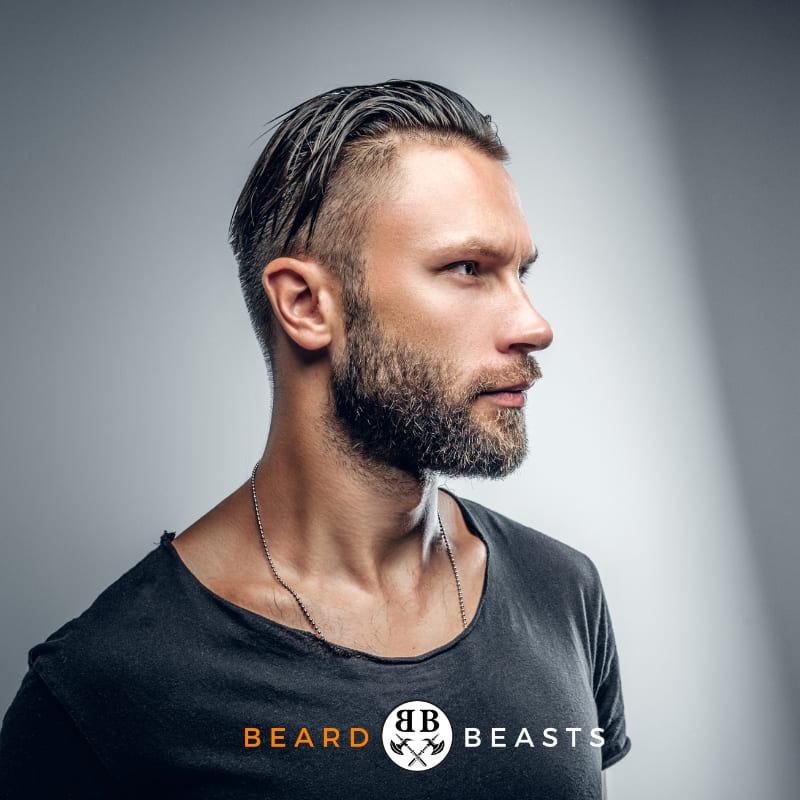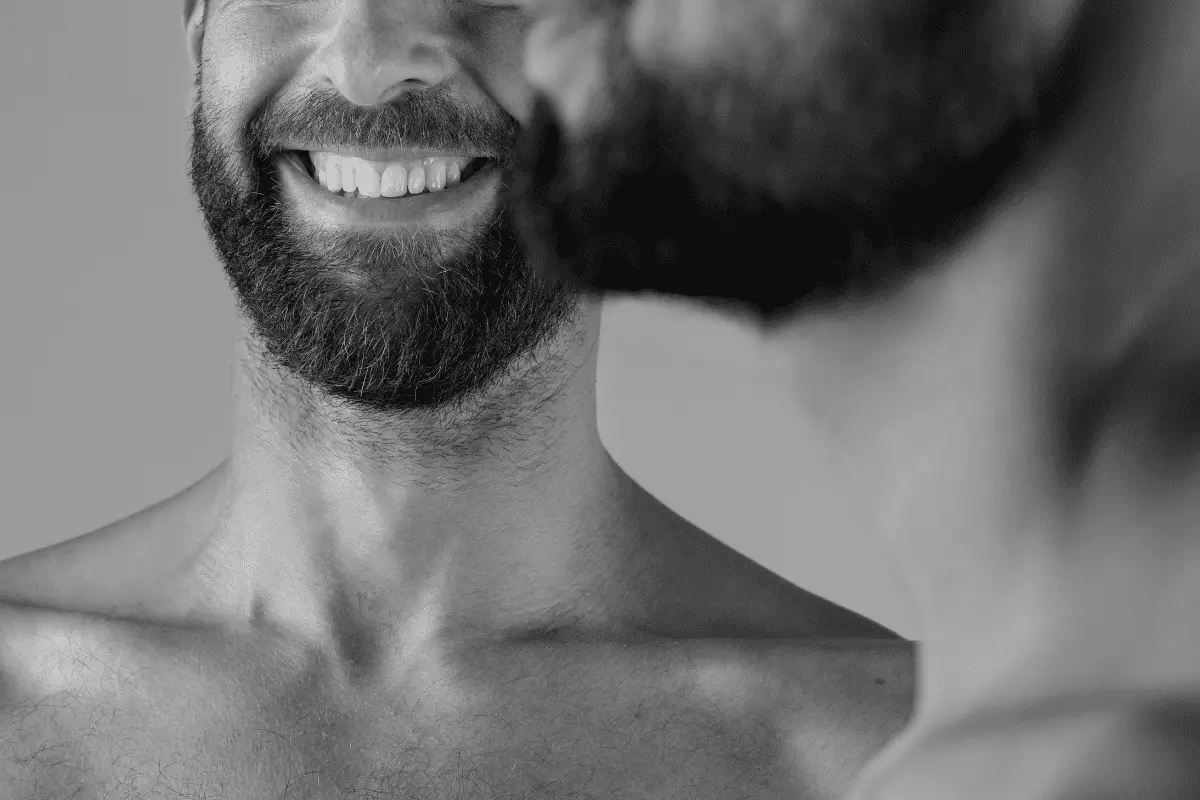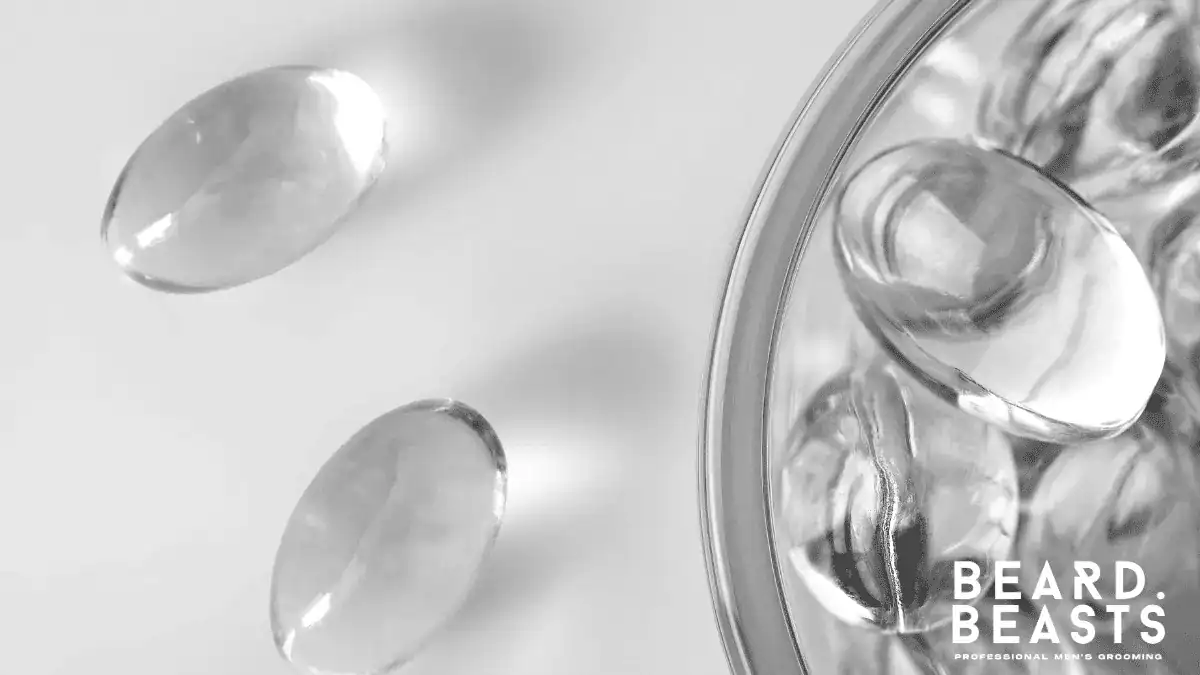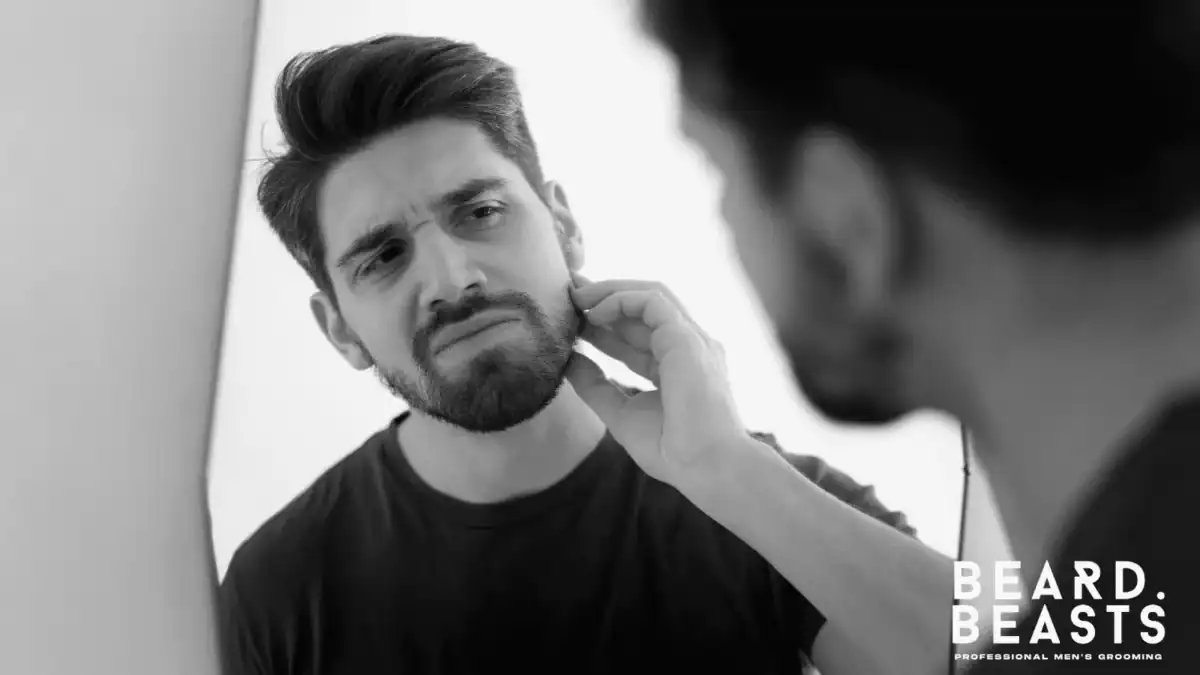Welcome, beard enthusiasts and grooming aficionados! Have you ever wondered why your beard behaves differently from your friend’s, or why some beard styles just don’t seem to work for you? The answer often lies in understanding the unique characteristics of different beard hair types. Just like the hair on your head, beard hair comes in a variety of textures and growth patterns, each requiring its own special care and grooming techniques.
In this comprehensive guide, we’re diving deep into the world of beard hair. We’ll explore the different types of facial hair, from the sleek and straight to the wild and curly, and everything in between. Knowing your specific type of beard hair is a game-changer. It not only helps you choose the right grooming tools and products but also enables you to style your beard in a way that complements its natural flow and texture.
But it’s not just about looking good. Proper grooming of your beard hair, regardless of its type, is essential for maintaining overall facial hygiene and skin health. Whether you’re sporting a full, bushy beard or a neat, trimmed look, understanding the nuances of your beard hair type can make your daily grooming routine more effective and enjoyable.
So, whether you’re a seasoned beard-grower or just starting on your beard journey, this article is your go-to resource. Get ready to delve into the fascinating world of types of beard hair, armed with tips, tricks, and insights to keep your beard looking its best. Let’s embrace the diversity of our beards and learn how to groom them like pros!
Understanding Different Beard Hair Types
Growing a beard isn’t just a fashion statement; it’s a journey of understanding and embracing the unique characteristics of your facial hair. Let’s dive into the world of different beard hair types, unravel the mysteries behind their growth patterns, and learn how to identify your own beard type.
Characteristics of Different Types of Facial Hair
The beard, a symbol of individuality, comes in various textures and patterns. Knowing these differences is crucial in grooming and styling your beard to its best potential.
Straight Beard Hair:
- Smooth and Sleek: Straight beard hair typically grows out smooth and lies flat against the skin. This type of hair reflects light well, often giving it a shiny appearance.
- Even Growth: One of the benefits of straight beard hair is its uniform growth pattern. It tends to grow evenly across the face, which can make achieving a symmetrical beard shape easier.
Wavy Beard Hair:
- Distinctively Textured: Wavy beard hair is characterized by its bends and curves, creating a texture that’s visually interesting and tactile.
- Versatile Growth Pattern: While it doesn’t coil tightly like curly hair, wavy beard hair tends to have a mind of its own, often growing in varying directions, which can add to a fuller beard appearance.
Curly Beard Hair:
- Tight Coils and Volume: Curly beard hair is easily recognizable by its tight curls, which add significant volume and texture to the beard.
- Spiral Growth Pattern: The curls grow in a spiral pattern, often resulting in the beard appearing shorter than its actual length. This pattern also means that curly beard hair can be prone to tangling and matting.
Coarse Beard Hair:
- Thick and Rigid: Coarse facial hair is typically thicker and more rigid than other beard types, which can give it a rough texture.
- Variable Growth Patterns: This type of beard hair often grows in various directions, leading to a more untamed and wild look. It might also be more prone to developing knots and tangles.
Fine Beard Hair:
- Soft and Delicate: Fine beard hair is noticeably softer and thinner compared to other beard types. It has a gentle feel and a subtle appearance.
- Volume Challenges: One of the main challenges with fine beard hair is its tendency to lack volume, which can make the beard look sparser. Additionally, it might grow at a slower rate, making it take longer to achieve desired beard lengths.
Genetic and Environmental Factors Affecting Beard Hair
Your beard is a reflection of your genetic blueprint and environmental influences.
- Genetics: Your genes play a pivotal role in determining your beard hair type, thickness, and growth pattern. If your father or grandfather sported a thick, curly beard, chances are you might too.
- Environment: External factors like climate and pollution can affect your beard. Dry, cold weather might make your beard hair brittle, while humid conditions can increase frizziness in curly types.
Identifying Your Beard Hair Type
Figuring out your beard hair type isn’t just about looking in the mirror; it’s about understanding how your beard reacts to different conditions and treatments.
- Texture Test: Feel your beard. Is it rough or smooth? Does it curl around your fingers or fall straight?
- Behavior Observation: Notice how your beard behaves after a wash. Does it frizz up, lay flat, or form waves?
- Growth Pattern Analysis: Look at the direction and pattern of your beard’s growth. Is it uniform, or does it grow in different directions?
- Consult a Professional: If you’re still unsure, a visit to a barber experienced in beard grooming can provide insights into your beard type and tailored grooming tips.
Understanding the types of beard hair and their characteristics is the cornerstone of effective beard grooming. With this knowledge, you can choose the right products, styles, and care routines that align with your unique beard type. Remember, your beard is a natural extension of your personality. Embrace its type and wear it proudly!
Grooming Different Types of Beard Hair
Each beard is unique, and so is the way it should be cared for. Whether you have straight, wavy, curly, or coarse beard hair, there’s a grooming routine that’s just right for you. Let’s dive into the specifics of grooming different types of facial hair, ensuring your beard not only looks great but feels great too.
Grooming Straight Beard Hair
Straight beard hair, often admired for its neat appearance, requires specific grooming techniques to maintain its sleek look.
Regular Trimming:
Even though straight beard hair grows evenly, regular trims are essential to maintain the desired length and shape. This prevents beard split ends and ensures that your beard looks well-maintained.
Lightweight Beard Oil:
To maintain the sleek look of straight beard hair, use a light beard oil. This will keep your beard nourished and add a subtle shine without making it look greasy.
Washing and Conditioning:
Cleanse your beard regularly with a gentle beard shampoo to remove any dirt or grime. Follow up with a conditioner to keep the hair soft and manageable.
Use of a Beard Comb:
A fine-toothed comb is ideal for straight beard hair. It helps in styling, distributing oils evenly, and keeping your beard free from tangles.
Blow Drying for Style:
If you want to style your straight beard hair, a blow dryer can be a useful tool. Use it on a low heat setting along with a comb to shape your beard as desired. Remember to protect your beard with a heat protectant spray to prevent damage.
Minimal Products for a Natural Look:
Straight beard hair often looks best with minimal styling products. Overusing products like balms or waxes can weigh it down, taking away from its natural flow and texture.
Regular Skin Care:
Don’t forget the skin underneath your beard. Keeping your skin healthy with regular cleansing and moisturizing will ensure that your straight beard hair has a healthy foundation to grow from.
By following these beard grooming tips, you can ensure that your straight beard hair not only looks great but is also healthy and well-maintained. Remember, the key is in regular care and using the right products that suit the nature of your straight beard hair. With the right approach, your straight beard can be a defining feature of your personal style.
Managing Wavy Beard Hair
Wavy beard hair, with its unique balance between straight and curly, presents a distinct set of grooming challenges and opportunities. Its textured appearance adds character to your look, but without proper care, it can become unruly. Here’s how to master the art of grooming wavy beard hair:
Regular Hydration:
Wavy beard hair needs moisture to maintain its shape and health. Use a hydrating beard balm or conditioner regularly to prevent it from becoming dry and frizzy.
Combing and Detangling:
A wide-toothed comb is ideal for wavy beard hair. It helps to detangle the hair without pulling out the natural waves. Combing your beard when it’s slightly damp can also help in maintaining its natural pattern.
Trimming Techniques:
Trimming wavy beard hair can be tricky due to its uneven growth. Use a pair of sharp beard scissors to trim any beard hairs sticking out and maintain a uniform length. It’s often best to trim your beard when it’s dry, as wet hair appears longer and might lead to over-trimming.
Washing with Care:
Use a gentle beard shampoo to clean your beard without stripping away natural oils. Avoid washing your beard too frequently, as this can lead to dryness and increase frizz.
Styling Products:
Use a light hold styling product to keep your waves in place without making them stiff. Beard creams and light waxes can be great for defining the waves and adding some control.
Drying Gently:
After washing, pat your beard gently with a towel. Avoid rubbing it vigorously as this can disrupt the natural wave pattern and lead to frizz.
Beard Oil for Softness:
Regularly apply beard oil to keep your wavy beard soft and manageable. It helps in reducing itchy facial hair and keeps the skin beneath your beard healthy.
Embrace the Natural Look:
Wavy beard hair looks best when its natural texture is embraced. Avoid over-styling or trying to straighten out the waves, as this can damage your beard and skin.
By adopting these grooming tips, you can ensure that your wavy beard hair looks as good as it feels. Remember, the key with wavy beard hair is to work with its natural flow, not against it. With the right care and styling, your wavy beard can be a standout feature that enhances your personal style.
Grooming Curly Beard Hair
Curly beard hair, with its tight coils and distinctive volume, offers a unique and bold look. However, it requires specific grooming strategies to maintain its health and appearance. The spiral nature of the curls can present challenges, but with the right care, your curly beard can become your crowning glory.
Deep Hydration:
Curly beard hair tends to be dryer than other different beard hair types, making hydration essential. Use a rich, nourishing beard conditioner to keep the curls moisturized and healthy. Leave-in conditioners or beard balms can be particularly effective for maintaining long-lasting hydration.
Gentle Detangling:
Regular detangling is crucial to prevent knots and tangles. Use a wide-toothed beard comb or a specially designed beard detangling brush. It’s best to detangle when the beard is damp, as dry combing can lead to breakage and frizz.
Regular Washing with the Right Products:
Wash your beard with a sulfate-free beard shampoo that won’t strip natural oils. Curly hair is naturally dry, and maintaining its oil balance is key to keeping it healthy and manageable.
Trimming When Dry:
Unlike straight or wavy hair, curly beard hair should be trimmed when it’s dry. This approach allows you to see the true length of your curls and avoid cutting too much.
Use of Beard Oils and Balms:
Regular application of beard oil will keep the hair soft and reduce itchiness. For styling and extra moisture, a beard balm can help in defining the curls and keeping them in place.
Avoiding Heat Styling:
High heat can damage curly beard hair. If you must use a blow dryer, use a diffuser attachment on a low heat setting to prevent heat damage and maintain your natural curl pattern.
Patience with Styling:
Curly beard hair can be unpredictable and may not always sit the way you want it to. Embrace its natural pattern and be patient when styling. Sometimes, the best looks come from letting your beard take its natural shape.
Regular Professional Trims:
If you’re unsure about how to handle your curly beard, consider getting it trimmed by a professional. They can shape it in a way that compliments its natural pattern and your face shape.
By embracing these grooming tips, you can ensure that your curly beard remains a source of pride and distinction. Remember, the key to a great curly beard is understanding its unique needs and working with its natural tendencies, not against them. With the right care, your curly beard can be a defining aspect of your personal style and a testament to your grooming prowess.
Grooming Coarse Beard Hair
Coarse beard hair, with its robust and rugged texture, can be both a blessing and a challenge. It’s thick and strong, often giving off a very masculine vibe, but it can also be unruly and tough to manage. The right grooming routine, however, can turn your coarse beard into a well-tamed, impressive asset.
Regular Softening Treatments:
The key to managing coarse beard hair is regular softening. Use a high-quality beard oil daily to nourish and soften the hair. Beard oils with natural ingredients like argan oil, jojoba oil, or coconut oil are especially effective.
Deep Conditioning:
A deep conditioning treatment, once or twice a week, can make a significant difference. Look for products specifically designed for coarse hair to provide extra moisture and softness.
Boar Bristle Brushing:
A boar bristle brush is ideal for coarse beard hair. Not only does it help in evenly distributing beard oils and balms, but it also stimulates the skin and helps to train the hair to grow in a more uniform direction.
Regular Trimming:
Keep your coarse beard hair trimmed to avoid split ends and maintain a neat appearance. A well-maintained trim can also reduce the overall ‘rough’ look of the beard.
Gentle Washing:
Use a sulfate-free beard shampoo to cleanse your beard without stripping it of its natural oils. Over-washing can lead to dryness and increase coarseness, so limit washing to a few times a week.
Detangling Carefully:
Tackle any knots or tangles gently to avoid breakage. Using a wide-toothed comb, start detangling from the ends of your beard and work your way up to the roots.
Hydration is Key:
Keep both your beard and the skin underneath hydrated. A dry skin can lead to itchiness and flakiness, exacerbating the rough texture of your beard.
Patience and Regular Care:
Managing coarse beard hair requires patience and consistent care. Over time, with the right grooming routine, your beard will become more manageable and softer to the touch.
By embracing these grooming tips, you can transform your coarse beard hair from tough and wiry to soft and manageable. A coarse beard, when properly cared for, can become a striking feature that complements your rugged individuality. Remember, the secret to a great coarse beard lies in regular, dedicated care and the right grooming products.
Grooming Thin or Fine Beard Hair
Thin or fine beard hair, characterized by its soft and delicate texture, presents a unique set of grooming challenges. It may lack the natural volume and robustness of thicker beard types, but with the right care and styling, it can still look full and well-maintained. Here’s how to make the most of your fine beard hair.
Lightweight Styling Products:
To create the illusion of a fuller beard, opt for lightweight styling products. Heavy waxes or gels can weigh down fine hair, making it appear even thinner. Instead, use a light hold mousse or spray that adds volume without the extra weight.
Gentle Washing and Conditioning:
Choose a gentle, volumizing beard shampoo and conditioner that won’t strip your hair of its natural oils. Avoid over-washing, as this can dry out fine hair and make it more prone to breakage.
Soft Bristle Brushing:
Use a soft bristle brush to groom your beard. This will help in styling without causing damage to the delicate hair strands. It’s also great for stimulating blood flow to the skin, potentially encouraging healthier beard growth.
Avoiding Excessive Heat:
When drying your beard, avoid using high heat settings on your hairdryer, as heat can damage fine hair. Instead, let it air dry or use a cool setting. If you must use heat, protect your beard with a heat protectant spray.
Regular Trims for Health and Shape:
Even though your goal might be to grow your beard, regular trims are important to keep fine beard hair healthy. Trimming helps get rid of split ends and can make your beard look thicker and more even.
Nourishing Oils and Serums:
Apply a lightweight beard oil that nourishes without weighing down your hair. Look for products with natural ingredients like argan oil, which can strengthen and add shine to fine hair.
Healthy Diet and Supplements:
Since fine beard hair can benefit from a boost in growth, consider a diet rich in vitamins and minerals that support hair health. Supplements like biotin can also be beneficial, but it’s advisable to consult with a healthcare provider before starting any supplement regimen.
Patience and Realistic Expectations:
Growing and grooming a fine beard requires patience. Understand and embrace your beard’s natural characteristics, and set realistic goals for its appearance and length.
By adopting these grooming tips, you can ensure that your fine beard hair looks its best. Remember, the beauty of a beard lies in its uniqueness. With the right care and styling, even a thin or fine beard can become an attractive and defining feature of your style.
No matter the type of beard hair you have, remember that grooming is both an art and a science. It’s about understanding what your beard needs and how to provide it. By following these tailored tips for different beard hair types, you can ensure that your beard not only looks great but is also a testament to your commitment to personal grooming and style. Embrace your beard’s unique character and let it complement your personality beautifully!
Styling and Shaping Your Beard
Finding the perfect beard style isn’t just about following trends; it’s about understanding what works best with your beard hair type. The right style can accentuate your best features, complement your hair type, and reflect your personality. Let’s explore how to choose the best beard style for your hair type and some step-by-step styling guides for different beard hair types.
Choosing the Right Beard Style for Your Hair Type
Your beard is as unique as you are, and choosing the right style can make a world of difference in your overall look.
- For Straight Beard Hair: Straight hair is versatile and can suit most beard styles. Consider classic styles like the Full Beard or Goatee, which can be easily shaped and maintained with straight hair.
- For Wavy Beard Hair: Embrace the natural texture of wavy hair with styles that add volume. The Van Dyke or a medium-length Full Beard works well with this hair type, enhancing its natural body.
- For Curly Beard Hair: Curly beards are great for styles that allow for natural growth, like the Garibaldi. The key is to let the curls do their thing, with occasional trims for shape.
- For Coarse Beard Hair: Rugged and bold styles suit coarse hair types. A shorter Boxed Beard or even a Controlled Bandholz can look great, as these styles can manage the thickness and texture.
- For Thin or Fine Beard Hair: Opt for styles that create the illusion of fullness, like a neatly trimmed Corporate Beard or a Chin Strap.
Step-by-Step Styling Guides
Each beard type has its unique characteristics and requires a specific approach to styling. Let’s delve into detailed styling guides for straight, wavy/curly, and coarse/unruly beard hair types.
Straight Beard Hair Styling
- Preparation:
- Begin with a clean, thoroughly dried beard to ensure ease of styling. Wash with a mild beard shampoo and follow with a conditioner to soften the hair.
- Thoroughly dry your beard with a towel or a blow dryer on a low-heat setting. Avoid excessive heat to prevent damage.
- Detangling:
- Gently comb through your beard using a fine-toothed comb to remove any knots and ensure smoothness.
- Trimming:
- Use sharp scissors or a quality beard trimmer for precise trimming. Focus on maintaining an even length and removing stray hairs.
- For a trimmer, select the appropriate guard setting to achieve your desired length.
- Applying Products:
- Lightly apply beard oil or balm, focusing on the ends and the skin underneath. This step is crucial for adding shine and a slight hold, enhancing the straight hair’s natural sleek appearance.
- Styling:
- Use a comb for a structured look or your fingers for a more relaxed style. For a formal appearance, comb the hair downwards, following its natural growth pattern. For a casual look, fluff the beard slightly with your fingers for added volume.
- Maintenance:
- Carry a small beard brush or comb for on-the-go adjustments. A portable bottle of beard oil can also be handy for touch-ups during the day.
Wavy or Curly Beard Hair Styling
- Washing:
- Use a hydrating beard shampoo and conditioner to cleanse and moisturize the hair. This step helps in defining the natural waves or curls.
- Applying Products:
- While the beard is still damp, apply a beard cream or balm to define and enhance the texture. These products help in maintaining the natural curl pattern and add moisture.
- Detangling:
- Gently use a wide-tooth comb to detangle. Start from the ends and slowly work your way to the roots to avoid breakage.
- Drying:
- Let your beard air dry to preserve the natural wave or curl. Avoid using a blow dryer, as it can disrupt the curl pattern and increase frizz.
- Trimming:
- Trim any stray or unruly hairs to maintain a neat appearance. Curly and wavy beards often require less frequent trimming compared to straight beards.
Coarse or Unruly Beard Hair Styling
- Cleansing:
- Start with a moisturizing beard wash to clean and hydrate the beard, preparing it for styling.
- Conditioning:
- Use a deep conditioner or a hot oil treatment to soften the coarse hair. This step is essential for making the beard more manageable.
- Applying Products:
- While the beard is damp, apply a heavy-duty beard balm to tame and style. These balms are designed to provide extra hold and conditioning for coarse hair.
- Brushing:
- Use a boar bristle brush to evenly distribute the balm and style the beard. The bristles help in smoothing the hair and reducing frizz.
- Regular Trimming:
- Trim your beard regularly to maintain its shape and prevent split ends. Coarse beards can quickly look unkempt without frequent trims.
By adhering to these customized styling guides for different beard hair types, including straight, wavy, curly, and coarse textures, you can ensure that your beard, no matter its specific type, always looks its finest.
The secret to successful beard grooming and styling lies in comprehending the unique characteristics of your facial hair type and employing the appropriate products and techniques to augment its inherent beauty.
With consistent patience and practice, you’ll become adept at mastering the art of beard styling for various types of beard hair, leading to a well-maintained, aesthetically pleasing beard.
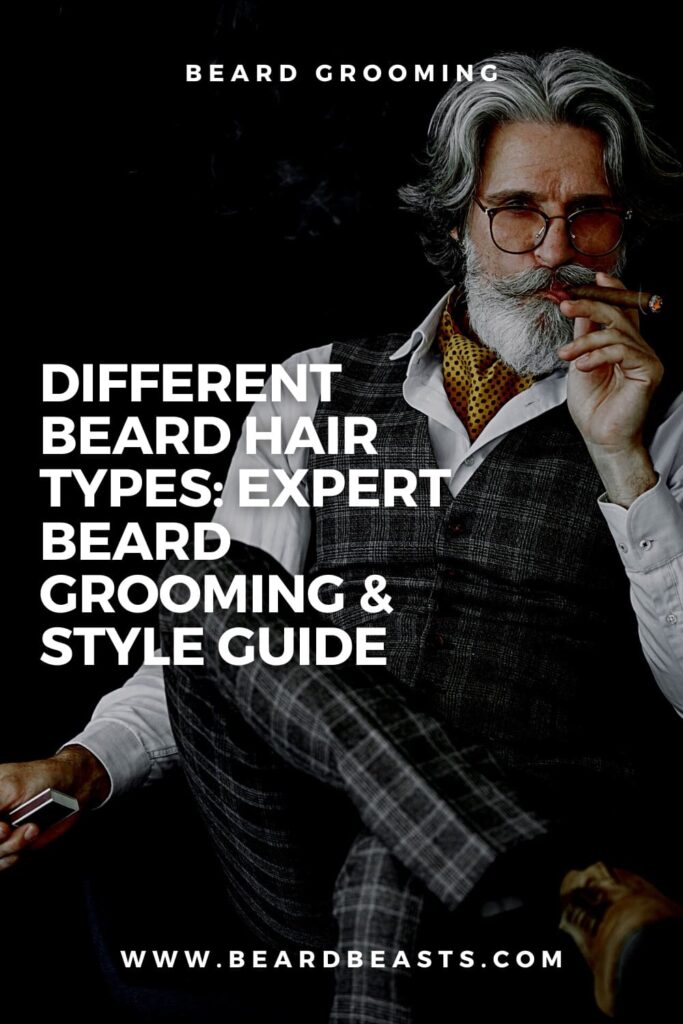
Conclusion: Embracing Your Beard’s Unique Character
As we wrap up this comprehensive guide on grooming different beard hair types, let’s take a moment to recap the key points and encourage a spirit of experimentation and personal expression in your beard grooming journey.
Key Takeaways
- Understanding Your Beard: Recognizing the specific type of your beard hair – be it straight, wavy, curly, or coarse – is the foundation of effective grooming. Each type has its unique characteristics and requires tailored care.
- Grooming Essentials: Equipping yourself with the right tools and products is crucial. Whether it’s a trusty comb for straight hair, a nourishing balm for curly locks, or a softening oil for coarse bristles, choosing the right grooming aids makes all the difference.
- Styling Techniques: We’ve delved into various styling methods for different types of facial hair. Remember, the goal is to enhance the natural beauty of your beard, keeping it healthy and well-groomed.
- Regular Maintenance: Consistency is key in beard grooming. Regular trimming, washing, and conditioning are vital, no matter the type of beard hair you have.
- Personal Health: Don’t forget that a healthy beard starts with a healthy you. A balanced diet, hydration, and overall skin care contribute significantly to the health of your facial hair.
Encouragement for Experimentation
Now, armed with the knowledge of how to care for different beard hair types, it’s time to experiment and find the style that best expresses your personality. Don’t be afraid to try new grooming techniques or styles. Your beard is a reflection of your individuality, so feel free to play around with different looks. Whether you’re aiming for a meticulously groomed appearance or a more natural, rugged style, your beard can be a versatile element of your personal style.
Remember, the journey of grooming is personal and evolving. What works for one beard might not work for another, and that’s perfectly okay. Embrace the learning process and enjoy discovering what makes your beard unique. Share your experiences, learn from others, and most importantly, have fun with it!
In conclusion, whether you’re nurturing a straight, wavy, curly, or coarse beard, the journey of grooming is a rewarding one. With the right approach, tools, and a bit of creativity, your beard can become one of your most striking features. So go ahead, experiment, and let your beard be a proud statement of your personal style.

